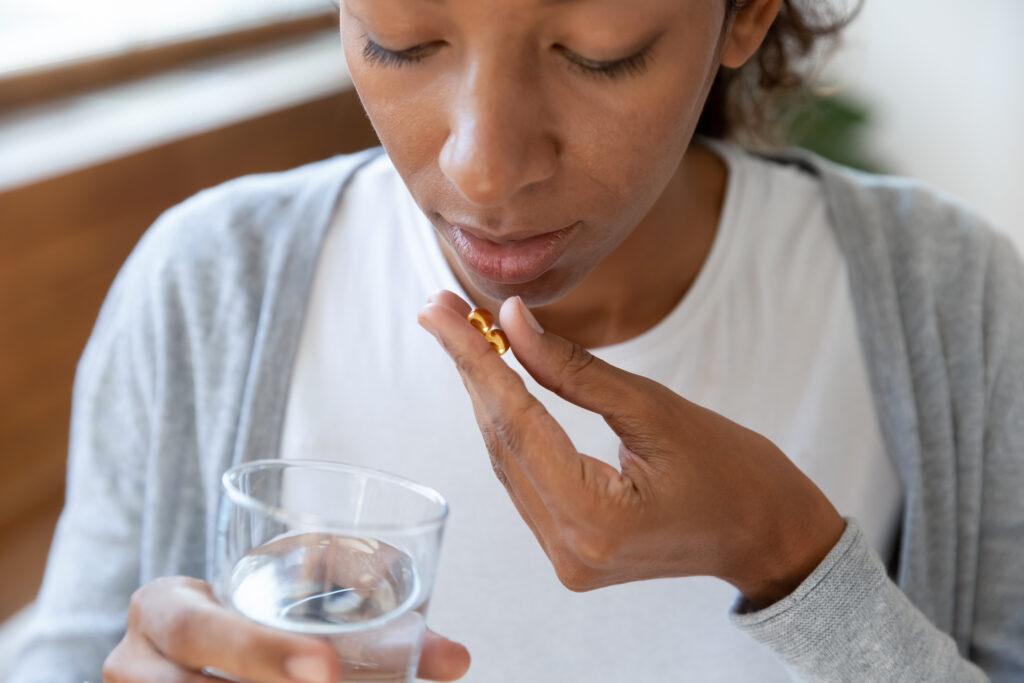How Vitamin D Can Help Women Live Healthier, Longer Lives

With the wellness industry overflowing with supplements and vitamins, it might come as a surprise that more than 40% of Americans are deficient in vitamin D — a shortfall that can have serious health consequences.
After months of winter, your vitamin D levels are likely at their lowest. That’s because this essential nutrient is primarily produced when your skin is exposed to sunlight. For women with melanin-rich skin, this process is even more challenging, as melanin acts as a natural sunblock, reducing vitamin D absorption.
Let’s dive into why maintaining strong vitamin D levels is a must—especially right now.

Weight Loss
Studies have shown that there is a connection between vitamin D and weight loss: people taking a D and calcium supplement lost more weight than those who were taking a placebo. This was observed especially true in women.
People who suffer from a vitamin D deficiency are more likely to crave fatty foods that often contain it, making it harder for them to lose weight through simple dieting. While taking vitamin D doesn’t inherently make you lose weight, it’s a beneficial supplement for people who wish to lose weight or suffer from obesity. Brigham and Women’s has found that the only way you can receive all the benefits of vitamin D without any supplementation is if your BMI is below 25.
Possible Multiple Sclerosis Prevention
Some studies have shown that vitamin D is beneficial to stopping or helping multiple sclerosis. Multiple sclerosis is an autoimmune disease in which the nerves in your brain and spinal cord are damaged by your own body. It’s been known since 1983, discovered by Professor Walter Stumpf, that immune cells have receptors for vitamin D, proving they are directly linked. As of now, there is still a lot more research that can be done to prove it can prevent MS entirely, but it’s showing promise as a treatment.
Lower Risks Of Depression
There’s a scientific reason as to why you might feel more depressed in the winter, being locked inside for a few months with no sunlight. Having vitamin D deficiency can set you up for depression.
Studies have shown that vitamin D deficiency is a contributing factor for depression and anxiety, especially following a traumatic event, like a stroke or giving birth. Otherwise, it may just improve your mood on a day-to-day basis.
Improved Bone Health
Bone health was one of the first things vitamin D was used to help, starting with rickets in children, which included extreme bone deficiencies. Studies highlight how beneficial vitamin D can be to bone health, especially to older postmenopausal women who are bigger risk for fractures if they injure their bones. Without vitamin D, we can only absorb 10 to 15% of the calcium we need, which is also crucial to bone health.

Improved Muscle Health
The link between vitamin D and muscle health is similar to its connection to bone health. Vitamin D deficiency causes decreased muscle mass, which leads to weakness in older individuals, especially paired with weaker bones.
When doing tests on vitamin D receptors, or VDRs, in animals, it was observed that there was a heavy concentration of VDRs in muscle fibers compared to other parts of the body, and this information could imply vitamin D is a viable treatment to regenerate muscle tissue, and fix injuries.
How Much Do You Need?
Too much vitamin D, while rare, can lead to hypervitaminosis D, with very serious side effects. To prevent this, do not take more than 4000 IU a day unless prescribed by a doctor.
Try to get more vitamin D naturally from sunlight and food that naturally contains it or that may be fortified with vitamins.






